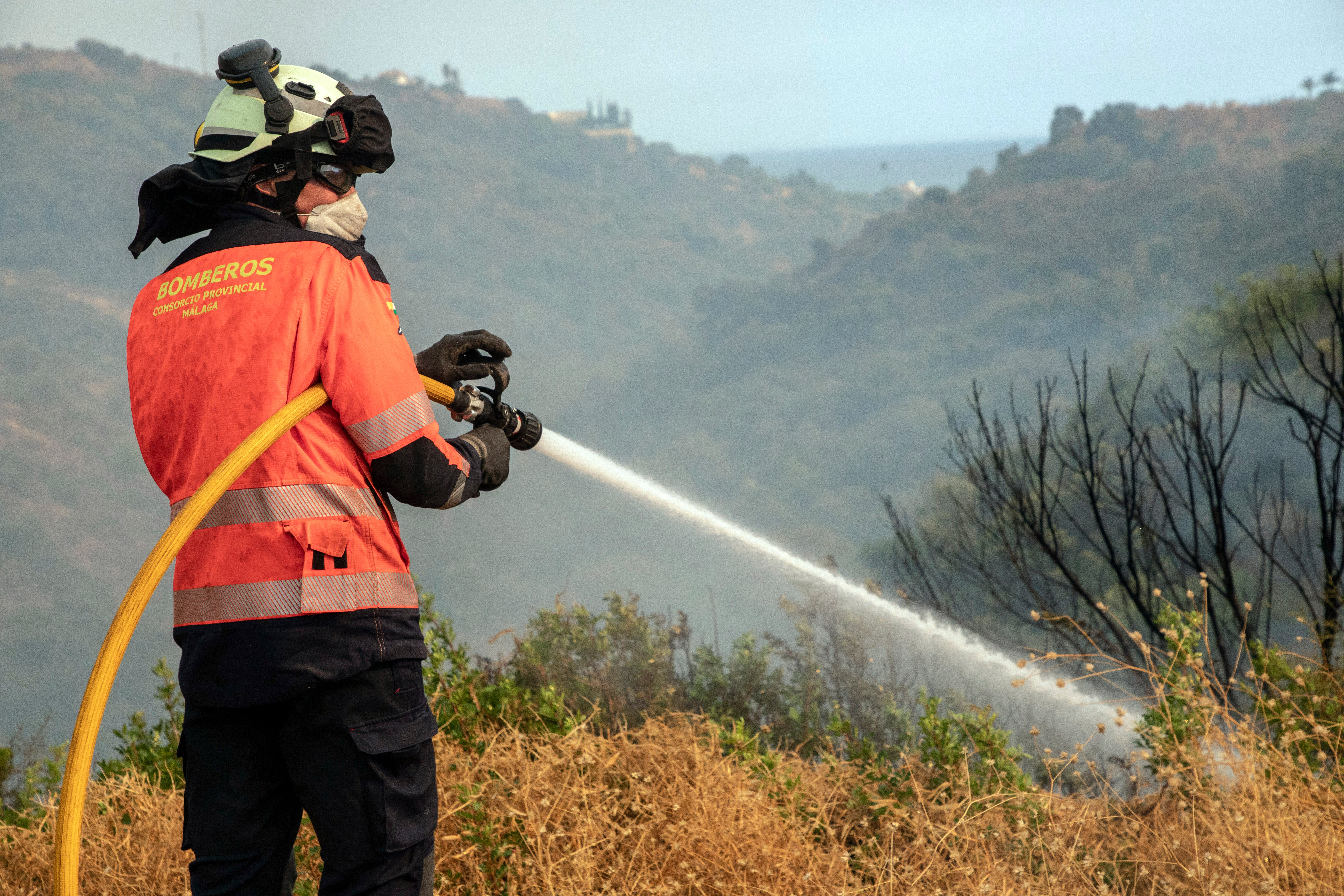Spain deploys military against wildfire, evacuates 2,500
Soldiers have been deployed in southeastern Spain to join the battle against a major wildfire that is burning for a fourth day, invigorated by stray embers that sparked a new hot spot

Soldiers were deployed Sunday in southeastern Spain to join the battle against a major wildfire that is burning for a fourth day, invigorated by stray embers that sparked a new hot spot.
The blaze in Malaga province has destroyed nearly 7,000 hectares (17,300 acres) of forest and prompted fresh evacuations, bringing the total number of residents displaced to around 2,500.
Plan Infoca, the Andalusia region’s agency in charge of firefighting efforts, described Sunday as a “key day” for bringing the blaze under control.
Authorities on Sunday preventively removed nearly 1,500 residents from the towns of Jubrique, Genalguacil and four other villages. Over 1,000 other people had been evacuated before the weekend from areas around the resort town of Estepona, which is popular among tourists and foreign expats.
An emergency brigade traveled from the military base of Morón, in southern Spain, to join more than 300 firefighters and 41 water-dropping aircraft battling the flames.
The reinforcement was welcomed. But firefighters like Rafael Fanega, who said the blaze was still “out of control," called for more boots on the ground to battle the flames.
“I don’t see enough deployed personnel," Fanega told The Associated Press, speaking in Jubrique after it was evacuated. "Some may see it differently, but that’s how I see it.”
Some progress was seen on Saturday, when authorities said better weather conditions had helped them stabilize the perimeter of the blaze, allowing them to focus on four hot spots.
A combination of hot and dry temperatures with strong winds created a perfect storm, turning the blaze that started late Wednesday into a “hungry monster,” Alejandro García, deputy operational chief of Plan Infoca, said earlier this week.
“The potency and strength of this wildfire is unusual for the kind of blazes that we are used to seeing in this country," García told reporters Sunday.
The firefighting agency released aerial pictures showing towering plumes of smoke emerging from rugged terrain, which it said made crews' access on the ground difficult. A 44-year-old firefighter died Thursday while trying to extinguish the blaze.
Authorities said they have evidence of arson and are investigating.
Wildfires are common in southern Europe during the hot, dry summer months. But have been particularly numerous around the Mediterranean Sea this year, worsened by the intense August heat waves.
In Spain, over 75,000 hectares (186,000 acres) of forest and bush areas have burned in the first eight months of the year, according to Spain’s Ministry of Ecological Transition.
Climate scientists say there is little doubt that climate change from the burning of coal, oil and natural gas is driving more extreme events, such as heat waves, droughts, wildfires, floods and storms.
___
Follow all AP stories on climate change issues at https://apnews.com/hub/climate-change.
Bookmark popover
Removed from bookmarks